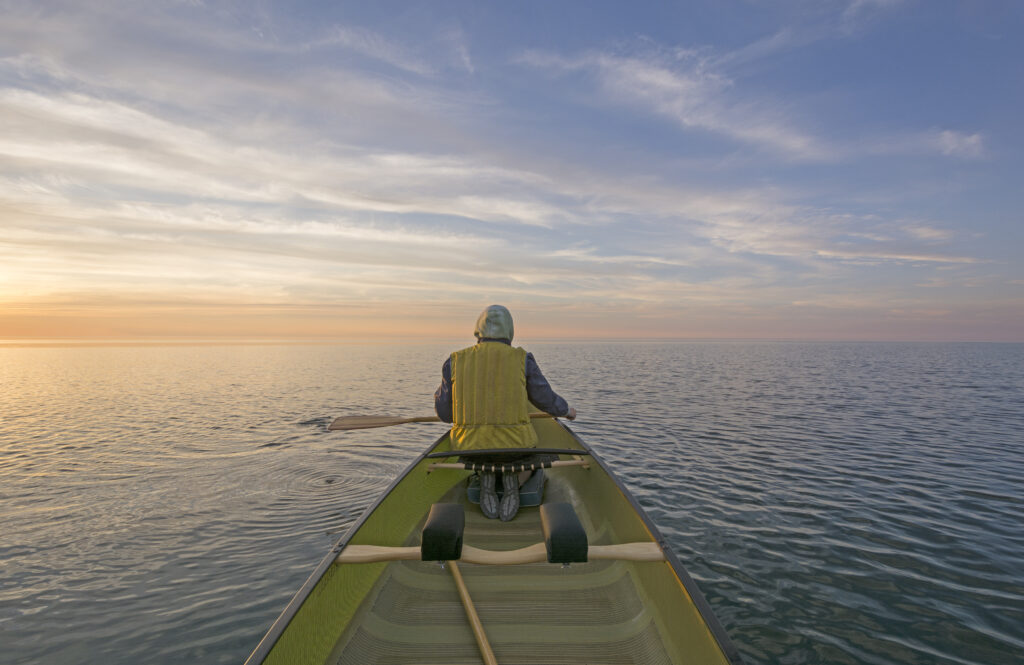New legislation will increase accessibility of saltwater recreational fishing rules and marine waters navigation information
Today, fishing and recreation groups joined the Theodore Roosevelt Conservation Partnership in celebrating the announced introduction of the Modernizing Access to Our Public Oceans Act. The MAPOceans Act will direct the standardization, consolidation, and digitization of boating and recreational fishing information for federally managed marine waters and federal fisheries administered by the National Oceanic and Atmospheric Administration. This bill will enhance and expand recreation opportunities by investing in modern technology commonly found in smartphone applications to provide anglers, boaters, and other users with the information they need to safely and legally enjoy offshore waters and federal saltwater fisheries.
The bipartisan legislation was introduced by U.S. Senators Ted Cruz (R-Texas) and Angus King (I-Maine).
“America’s saltwater anglers must navigate a gauntlet of complex regulations when they boat and fish offshore, and the MAPOceans Act will help ensure that people no longer miss a day on the water because federal agency rules are too hard to find and understand,” said Becky Humphries, president and CEO of the Theodore Roosevelt Conservation Partnership. “TRCP thanks Senator Cruz and Senator King for their leadership to introduce and advance this important public access legislation.”
The MAPOceans Act builds on the success of the MAPLand Act, passed in 2022, and recently introduced MAPWaters Act, by directing NOAA to digitize navigation and recreational use rules for marine waters and federal fisheries, and to make those resources readily available to the public. The hundreds of thousands of offshore ocean miles and numerous saltwater fish species regulated by NOAA present enormous recreational opportunities where restrictions are difficult to access and constantly changing. MAPOceans directs the federal agency to compile those rules in digital form so they can be integrated into GPS units and smartphone applications that are popular with boaters and anglers, making that information available to the public in real time.
“Navigating the complex web of fishing regulations, anchoring limitations, and restricted areas can be challenging for America’s anglers and boaters,” said Mike Leonard, vice president of government affairs at the American Sportfishing Association. “The MAPOceans Act would help Americans access marine waters with more confidence, ensuring that recreational information is easily accessible through marine electronics, mapping apps, and online platforms. On behalf of the recreational fishing industry, we thank Senator Cruz and Senator King for their leadership of this important legislation.”
This newly digitized public information would include:
• Status information on which waterways are open or closed to entry or watercraft, low-elevation aircraft, or diving.
• The areas of waterways with restrictions on motorized propulsion, horsepower, or gasoline fuel.
• Types of watercraft that are restricted on each area of a waterway, including the permissibility of motorboats, non-motorized watercraft, personal watercraft, airboats, amphibious aircraft, and oceangoing ships.
• The location and geographic boundaries of fishing restrictions on recreational and commercial fishing, including full or partial closures, no-take zones, and fishing restrictions within or surrounding marine protected areas.
• Fishing regulations concerning specific types of equipment or bait, such as restrictions on the use of circle hooks, descending devices, and trolling.
“Access for anglers isn’t just about where you can launch your boat,” said Chris Horton, senior director of fisheries policy for the Congressional Sportsmen’s Foundation. “With our complicated system of federal fisheries management, and with our network of marine protected areas, it can be especially challenging to know which waters are open for fishing and what type of gear you can use. We very much appreciate Senator Ted Cruz and Congressional Sportsmen’s Caucus Vice-Chair Senator Angus King for introducing MAPOceans that will remove barriers and uncertainty for America’s saltwater anglers.”
“Expanding access to the information anglers and boaters need to safely get out on the water will help fuel America’s $1.1 trillion outdoor recreation economy,” said Jessica Wahl Turner, president of Outdoor Recreation Roundtable. “The Outdoor Recreation Roundtable appreciates Senators Cruz and King for introducing the MAPOceans Act and for finding innovative ways to allow more Americans to enjoy the outdoors.”
“Accurate charts are one of the basic safety tools for all boaters,” said David B. Kennedy, manager of government affairs for BoatUS. “The over half-a-million BoatUS members applaud the MAPOceans Act as a major step forward in getting the information collected by federal agencies into boater chart plotters, mobile devices, and even good old paper charts.”
“When enjoying time on the water, ensuring compliance with complex federal navigation and fisheries regulations is essential to protecting critical habitat and ensuring the conservation of various sport-fish populations,” said Chad Tokowicz, government relations manager for the Marine Retailers Association of the Americas. “The MAPOceans Act will make it easier for recreational boaters and anglers to seamlessly navigate our federal waterways and comply with fisheries regulations, ultimately creating a more positive boating experience for all Americans. We thank Senator Cruz and Senator King for increasing access for recreational boaters and anglers while simultaneously ensuring compliance with important federal regulations.”





